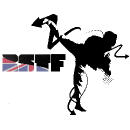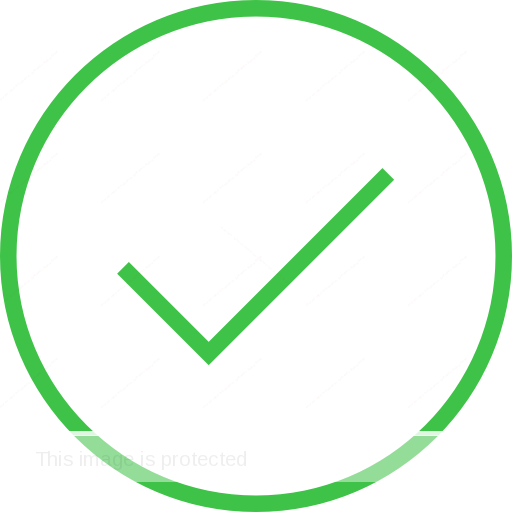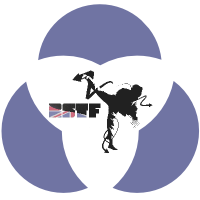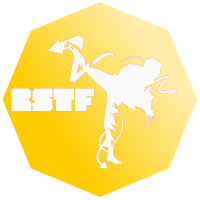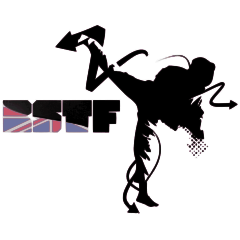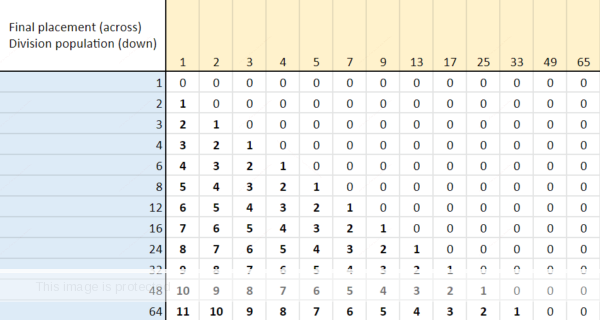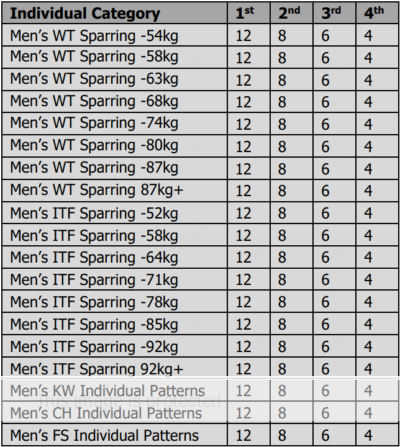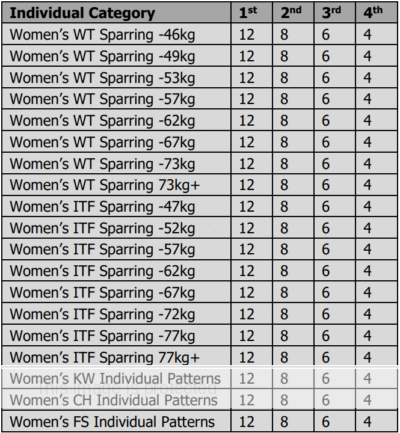Project Description

BUCS Championships Series General Entry Information
Entry process summary
- Student-athletes enter individually via BUCSPlay
- Each individual student-athlete competitor must submit their discipline entries via the BUCS Play website for each championships, by the entry deadline.
- Head coaches, assistant coaches and your club’s trainee umpire submit their entries via the BSTF Entry Portal
- Member must submit their coaching/ trainee umpiring registration list via the BSTF entry portal for each championships, by the entry deadline.
.Key concepts summary
- Participants must hold the correct membership pass type and require their BSTF ID code to enter
- Every participant (student-athletes, head-coach, assistant coaches (i.e., any team member who will sit in the coaches chair for teammates) and trainee umpires) must hold a BSTF account with correct BSTF pass type and note down their BSTF ID code in advance of entry.
- Please note that new Pass registrations must be manually reviewed and approved by an BSTF administrator before a BSTF ID code is generated. Therefore, ID codes will take some time to populate (typically within 5 working days) after registering your details for the first time. Please ensure that all of your student-athletes, coaches and trainee umpires are registered well in advance of an event entry to ensure their ID codes are available.
- Entries submitted without a valid BSTF ID code will not be accepted.
- Individual account holders may find their BSTF ID code via the Manage Your Account page.
- If you login via the Institution Administrator portal or Club Committee portal you will find an additional Team tab on the Manage Your Account page. This shows a full list of currently verified members’ accounts from your institution, including their BSTF ID codes.
- Pass Types
- Competitors must have a Student-athlete Pass and this must be of the correct grade class for each student-athlete: A (Class-C), (Class-B) or (Class-A) Pass to enter any C, B or A class divisions, respectively.
- When a student-athlete completes a grading and changes class they must login to the manage your account page and upgrade their pass (C->B or B->A), using the “upgrade” button on the Account tab, completing this before submitting their next event entry.
- Trainee umpires and assistant coaches who do not already hold a Student-athlete Pass require a General Pass
- Institution Administrators and Club Captains may upgrade their team members’ accounts in bulk from (free) Affiliate passes to (paid) Student-athlete passes. Please visit the Institution Administrator portal or Club Committee portal respectively.
- For more detailed information about Pass Types see our Registration Guide, Fees & FAQ page.
- Your team’s trainee umpire quota is proportional to sparring entries
- Teams are required to provide a quota of trainee umpires for each individual day of competition attended. The quota number is a function of your total team entries in the previous year’s Championships Series (each discipline’s quota is calculated separately). Your team’s quota for each event is listed in the ClubTraineeUmpireQuota tab.
- We recommend clubs organise as many current student, alumni and other potential trainee umpires as possible complete the required L4 online exam – making them eligible to enter as a trainee umpire – to maximise your spare capacity. Failing to provide the full quota of trainee umpires will result in a club fine(s). Please see the University Umpires section for more information about the trainee umpire quota and BSTF’s free umpire training courses available.
- L4 certification exams are available online on demand, free for all BSTF pass holders. Please login to the Manage Your Account section and navigate to the Exams tab to complete your L4 certification exam. Submission will not be accepted from individuals who have not completed the L4 exam in advance of their trainee umpire entry.
- Student-athlete eligibility
- Student-athlete competitors must meet full BUCS eligibility criteria, being current full time students internally registered at an institution of higher or further education, on courses equivalent to at least 60 credits per year (e.g., MSc, Degree or HND).
- Participants must be 18 or over.
- Class divisions
- Class divisions are determined by a competitor’s grade: C-class for 10th Kup – 7th Kup, B-class for 6th Kup – 3rd Kup, and A-class 2nd Kup+ (including all Dan grades).
- 10th Kup students are eligible to enter any C-class patterns disciplines, but are not eligible to enter any sparring disciplines.
- BUCS Points
- The top eight institutions by combined individual scores in all disciplines, classes (A, B and C) and divisions, across all three championships are awarded BUCS points
- BUCS individual placements (1st – 4th) and points are awarded to the top four student-athletes in each A-class sparring and individual patterns division based on their final score across the series. Each student-athlete’s best two of three championships’ results are counted towards their final score, except to break a tie, where all three championships’ results are compared.
- EUSA European Championships and Games qualification is based on an individual’s BUCS placement at the end of the series, not on the final tournament result alone as in previous years.
- BUCS entry phases and deadlines
- Student-athlete entries submitted via BUCS Play site before the stage 1 deadline have entry priority and pay the standard entry fees.
- Student-athletes may withdraw at any time before the stage 1 deadline without penalty (contact your institution administrator)
- Student-athlete entries submitted after the stage 1 deadline but before the stage 2 deadline are subject to an additional 20% fee by BUCS.
- Student-athlete entries submitted after the stage 2 deadline will not be accepted in any circumstances by BUCS.
- Accreditation & weigh-in
- Your team must arrive together during the advertised accreditation & weigh-in session.
- Teams will be weighed-in in the order they arrive at accreditation & weigh-in.
- There are two types of accreditation area:
- Registration desk location(s) (typically in main hall, see signage)
- Accreditation and weigh-in location(s) (typically in changing rooms, see signage)
- All student-athletes must attend accreditation and weigh-in and show their photo ID (e.g., driving licence) and student ID card. Student-athletes only need to attend accreditation and weigh-in once per competition, however, those student-athletes competing on one day and trainee umpiring on other day(s) must also attend the registration desk to sign-in on each day they volunteer towards your club’s trainee umpire quota.
- All head-coaches, trainee umpires and umpires must attend the registration desk on each day they are coaching/ trainee umpiring/ umpiring (i.e., both mornings of a 2 day championships) and show their photo ID (e.g., driving licence).
- There will be a maximum -/+50 g allowance for players being under/over their weight division at the weigh-in which will be strictly applied.
- Sparring competitors who fail to meet their weight may change weight divisions at the cost of a £20 fee. We encourage club captains to monitor their team members’ weights in advance to ensure the correct division is selected by each student-athlete.
- Trainee umpires must attend their advertised morning briefing session.
- Umpires must attend their advertised morning briefing session.
- Club captains must attend their advertised morning briefing session.
- Insurance and T&Cs
- BSTF events are independently insured and there are no requirements for additional 3rd party insurance (such as any policies(s) included with a 3rd party membership) in order to enter BSTF events.
- In submitting an entry all participants agree to the BSTF’s terms and conditions, including code of conduct, as well as all BUCS rules and regulations.
- Team captains: please read all rules & regulations
- Familiarise yourself with all the competition information, including but not limited to the: entry process; entry deadlines; player eligibility; the participant code of conduct; corner judges exams and quotas; weigh-in and accreditation information; and weight and class (grade) divisions in each discipline.
Student-athlete Eligibility
Student-athletes competitors entering BUCS Taekwondo Championships Series events must meet current BUCS eligibility criteria on the date of the event i.e., be current students internally registered at an institution of Higher or Further Education, be registered on a credit rated course (e.g. MSc, Degree or HND), and be undertaking a study programme equivalent to at least 60 credits per year, or in the case of a postgraduate student be undertaking a study programme of no less than 50% of the full time student programme.
All competitors must be members of their university’s students’ union and be in good standing with them. All competitors must be aged 18 or over.
Student-athletes from Universities Without Taekwondo Clubs
Student-athletes from universities without an existing taekwondo club are also eligible to enter BSTF events. These student-athletes should create an individual account as usual and then create a ‘Club Committee’ account for their ‘team of 1’ to receive important club captain email updates.
Grade Division Boundaries
- 10th* – 7th Kup (Novice, C-Class)
- 6th – 3rd Kup (Mid, B-Class)
- 2nd Kup + including Dan grades (Senior, A-Class)
*10th Kup (ungraded/ white belt) competitors may compete in the C-class patterns disciplines but are not eligible for sparring disciplines which are restricted to 9th Kup+.
Competitor Experience Levels
The BUCS Taekwondo Championships Series competition grade divisions i.e., C, B, and A classes are intended for participants with approximately <1.5, <2.5 and >2.5 years of experience respectively.
It is required competitors enter any discipline only after having received appropriate training in that discipline from a qualified coach. By submitting an entry the competitor thereby confirms they have received suitable prior training experience in the discipline(s) they are entering. 10th Kup (ungraded/white belt) students are not eligible to enter BUCS Taekwondo Championship Series sparring events, but may enter patterns competitions.
Competitors must compete in a same class division (A, B or C) in every discipline entered. If a competitor holds different taekwondo grades with different taekwondo organisations they must enter at their highest grade. Competitors must never enter a division lower than that of their highest taekwondo grade awarded.
Entry in Higher Class Division Requests
If a competitor’s Taekwondo grade does not match their actual level of experience (e.g., having prior martial art/ combat sport experience) you must complete an Entries Modification Form.
Your team may request that a competitor be allowed to enter at a higher class division than their current grade in cases where their ability level is such they can effectively and more appropriately compete in the higher division (this can be the case if, for example, an athlete has substantial experience in a similar combat sport, such as kickboxing, and their taekwondo grade does not reflect their athletic level).
Competitors must hold a taekwondo grade to enter a BSTF/ BUCS taekwondo competition. Competitors cannot be downgraded in future competitions once they have been uplifted to a higher division using this mechanism. To enter a higher class division your club’s institution administrator (typically after consulting with the club’s contracted head-coach) must endorse the higher class division change to us via an Entries Modification Form. Competitors may only be entered in a higher division in this way if your institution administrator endorses the change requested on that form, confirming it is your institution’s judgement that the higher class division is the most appropriate for the athlete and that the athlete’s knowledge of competition ruleset is sufficiently comprehensive.
Alumni-athlete Guest Entries
Eligibility criteria:
- Guest athletes must create/ renew a Alumnus-athlete Pass
- Guest athletes must have previously held a BSTF Student-athlete Pass,
- Guest athletes must have graduated within the past three years (for example to enter an event in 2023-24 one must have graduated no later than 2020)
- Guest athletes must be A-class competitors
- Guest athletes must be a current registered member of a university club
Guest athletes must create a Guest profile on BUCS Play (select Guest as your institution) and submit their entry via BUCS Play according to the same entry deadlines. Guest entries may be required to pay for the BUCS Play entries directly to BUCS in advance of the events entered. Guest entries will only be accepted if we have not reached the entry cap through student-athlete entries.
Individual Membership Passes
Each individual participant must hold the correct type of British Student Taekwondo Federation (BSTF) membership pass to compete in BUCS Taekwondo competitions.
Individual membership passes are available online, including new memberships and renewals for student-athletes, trainee umpires and coaches.
- Trainee umpires and assistant coaches who are not also competitors must select a General Pass
- Student-athletes must select a Student-athlete Pass which matches their level of competition entry (A, B or C-class) in order to enter Championships Series events.
Your BSTF ID code is required for entries on BUCS Play – this can be found on the Manage My Account page after registration. New pass registrations must be approved by a BSTF administrator before an ID code is generated and so ID codes will take some time to populate (typically within 5 working days) after registering your details. Please ensure that all of your student-athletes, coaches and trainee umpires are registered well in advance of an event entry to ensure their ID codes are available.
Pass types available
Most common Pass type options:
- For Student Competitors: Student-athlete Pass
- For L3, L4 Trainee Umpires (also competing): Student-athlete Pass
- For L3, L4 Trainee Umpires (only officiating): General Pass
- For Assistant Coaches (also competing): Student-athlete Pass
- For Assistant Coaches (only coaching): General Pass
- For Spectators/ Non-participants: Affiliate Pass
Other Pass types:
- For alumni-athlete guest entries (see eligibility rules): Alumni-athlete Pass
- For the club’s Head Coach: Head-coach Pass
- For L2, L1 Umpires: Master Pass (Umpire)
- For Institution Administrators: Staff Pass
Upgrading passes mid-season
Changing type: You can upgrade an Affiliate pass to a Student-athlete pass at any time by logging to the manage your account page and following instructions via the “upgrade” button on the Account tab.
Changing class: When a student-athlete completes a grading and changes class they must login to the manage your account page and upgrade their pass (C->B or B->A) using the “upgrade” button on the Account tab. Always complete this step before submitting an event entry in your new class.
Entry Process
To apply for the competition all eligible participants must follow these steps:
- BSTF Membership: Athletes, head-coaches, assistant coaches and trainee umpires must first register/ renew your membership pass on the BSTF website and note down your BSTF ID code*.
- Competitors must obtain an Athlete Pass membership which matches their class level i.e., grade level for competition entry (A, B or C-class)
- Head-coaches must hold a Head-coach Pass type
- Assistant coaches (who are not already Athlete Pass holders) and trainee umpire quota entrants (who are not already Athlete Pass holders) must hold a General Pass type (and not an Affiliate Pass type)
- BSTF Entry Portal: All head-coaches, assistant coaches and trainee umpire quota entrants must enter themselves via the BSTF Entry Portal
- The total number of individual qualified trainee umpires who register themselves on behalf of your team must meet the overall quota detailed in the Entry Information page (also listed in the Club Committee Portal/ Institution Administrator Portal ClubTraineeUmpireQuota tab)
- If a participant is entering an event in more than one role, for example as a competitor and an assistant coach, they must register on both BUCS Play (for their competition discipline(s) entry) and the BSTF Entry Portal (for their assistant coach role entry)
- You will also need to complete the Pre-Accreditation upload of your profile picture, photo ID and, for student-athletes their Student ID card (you only need to do this for the first event, the data will be saved for all subsequent events) via the Manage Your Account tabs.
- BUCS Play Entry: Competitors apply to each event via BUCS Play (instructions on how to do this can be found here), inputting their BSTF ID code where indicated during registration*
- Your institution administrator then approves your BUCS Play entries – we recommend the club captain should email your BUCS entries institution administrator on the entry deadline day to confirm they have received all of the entries and are ready to approve them.
- BUCS then approves/denies entry into competition and publishes confirmed entry list
*Your BSTF ID code can be found by logging in to Manage Your Account (new accounts are typically reviewed and activated within 5 working days). Please apply for your annual membership as early as possible.
Entry Review
Once your student-athletes have each individually registered to compete on BUCS Play your Institution Administrator (IA) will be able to review their entries on the IA BUCS Play dashboard and must approve those entries by the Institution Administrator approval deadline (which ends exactly 2 days after the athlete entry deadline).
Once your student-athletes, coaches and trainee umpires have each successfully registered/ renewed their membership pass on the BSTF website, your club captain and institution administrators may review a list of your institution’s current members, their pass types and BSTF ID codes via the Club Committee portal and Institution Administrator’s portal, respectively.
Once your student-athletes, coaches and trainee umpires have each individually registered for the event via the BSTF registration form, your club captains and institution administrators may review a list of team’s BSTF registration form registrations via the Club Committee portal and Institution Administrator’s portal, respectively.
Umpires L2/ L1 (National/ International Certified Referees & Judges)
For National/ International Certified Referees & Judges L2+, please visit the University Umpire Portal to register for this event.
Club Trainee Umpires (L4/ L3) please use the BSTF Registration Form link above.
Entry Deadlines
| Deadlines/ Entry opens – closes | Autumn Championships | Winter Championships | Spring Championships |
|---|---|---|---|
| BUCS Play Stage 1 entry window (via BUCS Play) & S1 BSTF membership pass registration/ renewal (via BSTF website) |
10th Oct to 7th Nov 2023 |
5th Dec 2023 to 16th Jan 2024 |
30th Jan to 20th Feb 2024 |
| BUCS Play Stage 2 entry window (via BUCS Play) & S2 BSTF membership pass registration/ renewal (via BSTF website) |
10th Nov to 14th Nov 2023 |
19th Jan to 26th Jan 2024 |
21st Feb to 27th Feb 2024 |
| Trainee umpire L4 exam finish (via Manage Your Account) | 12th Nov 2023 | 26th Jan 2024 | 27th Feb 2024 |
| Coach/ trainee umpire individual entry (via BSTF Entry Portal) | 14th Nov 2023 | 26th Jan 2024 | 27th Feb 2024 |
| Pre-accreditation proof of ID uploads (via Manage Your Account) | 14th Nov 2023 | 26th Jan 2024 | 27th Feb 2024 |
Entry deadlines are 11:45pm on the date indicated. Entry deadlines will be strictly adhered to, with no late competitor/ head-coach/ assistant coach/ trainee umpire entries accepted beyond the deadline under any circumstances. Fines levied by BUCS for trainee umpire submissions below quota or those absent on for the event.
On-the-day coach registrations will no longer be accepted from January 2022 onwards. All head-coach and assistant coach registrations must all be submitted in advance, or they will not be insured, will not be accredited and not permitted to participate.
Athletes being submitted in a dual role (competitor & assistant coach) must registered twice, once themselves via BUCS Play to register as a competitor, and again via the BSTF Registration Form to register as an assistant coach.
Entry Fees
Once the institution administrator has approved each entry submitted and the confirmed entry list has been published by BUCS, an invoice will be created by BUCS addressed to the institution union/ sports department for payment. Individual student-athletes will not be asked to pay for their entries during the BUCS Play event registration process.
Stage 1 entry fees are as listed in the registration guide fees tables.
Should the competition allow more entries, BUCS will open a stage two entry window. Priority will be given to the entries received before the stage one entry closing date. Entries received in the stage two window and accepted into the competition will be charged an additional 20% fee per entry by BUCS.
Withdrawals and changes
Competitor withdrawals must be made by a Institutional Administrators by emailing BUCS Play App Support.
- Withdrawals before the stage 1 entry deadline will not be charged.
- Withdrawals after the stage 1 entry deadline will still be charged the entry fee.
Special Entry Data
Individuals who meet the following criteria must complete an Entry Modification Form by the entry deadline in addition to submitting their BUCS Play entries:
- To notify BSTF you are a para athlete and to specify which para division you are applying enter. Enter your discipline on BUCS Play before the deadline, review the Para-Taekwondo Divisions section and then complete the Entry Modification Form stating which para division you wish to apply for.
- To notify BSTF of a medical condition you would like us to share with the medical staff at our events
- To request an athlete with combat sport experience beyond their taekwondo grade be permitted to compete in a higher grade division (e.g., an athlete graded to B class but with n years of kickboxing experience requesting to compete in the A-class division; this requires your institution’s approval and your Institution Administrator will be contacted)
- To notify BSTF you are a male transgender athlete applying to a competition
- To notify BSTF you are a female transgender athlete applying to a competition
- To contact us about other sensitive entry information
Our T&Cs of entry apply in all cases.
Data you send via the Entry Modification Form is only available to the minimum number of BSTF officers necessary to complete entry processing and should be used instead of the General Contact Form.
Athletes enter themselves individually using BUCS Play.
Every athlete entering taekwondo disciplines in a BUCS Taekwondo Championships event will need to use to the BUCS Play website or mobile app to enter.
It is possible for each athlete to continue to add, remove or change weight divisions of their own entries by logging in to BUCS Play and selecting their existing entries up until the stage 1 entry deadline or when their Institution Administrator has approved them (if approved before the entry deadline).
Following the registration deadline there is a two working-day period in which Institution Administrators may approve/ reject and make final amendments to their team members’ entry details before submission to BUCS. If you require any changes during this period you must contact your Students’ Union/ Sports Department and speak with your Institution Administrator for taekwondo. Online changes are not possible beyond that point.
We highly recommend a member of the club’s committee contact your BUCS entry approving Institution Administrator at the start of their two-working-day approval period, confirming they have seen all of your team members’ entries and are on schedule to approve them.
If you miss the stage 1 entry deadline there may be a stage 2 entry deadline available (check the BUCS Play event information or the BSTF website for each event’s entry deadline information). Entries made after a stage 1 deadline and before a stage 2 deadline cannot be amended (e.g., changing weight division). Please be aware BUCS charge an additional fee for stage 2 entries across all BUCS sports.
For more information about BUCS rules and regulations and BUCS withdrawal policies visit the respective pages of the BUCS website.
Queries regarding the BUCS Play student-athlete entry system should be directly to BUCS. BSTF staff and volunteers do not have access to the registration system – entry change requests should be made via your Institution Administrators/ Captains.
Queries relating to tournament operations may be directed to the BSTF via our contact form.
Coach and Trainee Umpire Entries
Coaches & Trainee Umpires enter themselves individually via the BSTF Entry Portal.
BUCS website links
Taekwondo: Autumn Championships 2023-24
Taekwondo: Winter Championships 2023-24
Taekwondo: Spring Championships 2023-24
How to Submit Your Individual Competition Entries via BUCS Play
Using BUCS Play Mobile App
1. Download BUCS Play from the App Store or Google Play Store and Login/Register.
2. Find the Taekwondo Community by going to More > My Communities > Find a new Community.
3. Once you have joined your Sport Community, you will find a number of features.
4. Scroll down to the Events section.
5. Select your BUCS Taekwondo event: either the Autumn, Winter or Spring Championships. There are a number of events displayed automatically and a See All Events button beneath which you may need to click to find your event (if you cannot find your event, entries may not yet be open. To find the full list of events and entry information Click Here).
6. Find the relevant Competition/Discipline (e.g. Men’s Chang-Hon Patterns) and click Join/Apply.
7. Add each additional discipline in the same way, one at a time (e.g., Men’s ITF rules sparring & weight division; Men’s WT rules sparring & weight division etc.,), until you have entered each discipline you want to compete in.
8. Select your Institution (you may need to click Other to find this), Click Join.
9. Fill in all the relevant information and then click Check Eligibility (ensure it ticks all the boxes), and then Apply.
10. Once you have successfully applied, you will enter the event entry approval process (where your institution administrator approves your entries).
11. Note that you will need to apply for each competition in the Championships Series in the same way (submitting entries once does not enter you in every competition of the Championships Series, only one of the events).
Learn more about BUCS Play
Here are some useful links if you have questions about using the BUCS Play system:
How do student-athletes enter events using BUCS Play desktop website?
Guest (Alumnus Pass holder) entries on BUCS Play
Where can I find other BUCS Play help topics and user guides?
Where can I submit a question or support request on BUCS Play?
Coach Registration
Each individual participant (student-athletes, coaches and trainee umpires) must hold a BSTF account, have selected the correct pass type and received their BSTF ID code prior to registration for a BUCS Championships.
Head-coaches, assistant coaches and trainee umpire quota entrants for each BUCS Championships must enter themselves via the BSTF entry portal (this is required, whether or not the same assistant coaches and trainee umpires have also already registered as competitors via the BUCS Play system).
Clubs may enter a maximum of one head-coach (maximum 1 per club); there is no cap on the number of participants who may be added as assistant coaches. All student-athletes must have a head/ assistant coach in their corner during their matches. Only head coaches and assistant coaches registered by the entry deadline will be insured and permitted to coach student-athletes during the competition.
Either a “head coach” or an “assistant coach” must be registered and present in the athlete’s chair for any athlete entered in sparring to allowed to compete. Both athlete and coach must display their accreditation to the court desk before the match begins.
It is at the discretion of the institution administrator (and not the club’s captain or their competitors), to permit the registration of a head coach to support their team. Coaches may be employees of their university, player coaches, or other experienced practitioners. Coaches must wear sports clothing and trainers; player coaches must cover their doboks with sports jackets and wear trainers. Coaches are expected to set an example to their teams and are required to remain composed and demonstrate good sportsmanship at all times. Only a player’s coach may launch an official protest via the post-match protest mechanism provided. Coaches must not leave their coaching seat during the match, nor coach loudly or excessively.
Club’s Trainee Umpire Quota and Trainee Umpire Registration
Each individual participant (student-athletes, coaches and trainee umpires) must first hold a BSTF account, have selected the correct pass type and received their BSTF ID code.
Trainee umpires must register for the event themselves via the BSTF entry portal (this is required whether or not the same coaches and trainee umpires have already registered as competitors via the BUCS Play system).
Trainee umpires must attend accreditation and stay for the full duration of the event. Trainee umpires must attend accreditation in the morning, and at the end of play assist with the packdown their court and attend a short debriefing session, before signing out using their ePass. Trainee umpires will be marked as absent if they leave early and do not attend the debriefing.
Attire for trainee umpires is sport shoes and black trousers (absolutely no university branded attire). An officials yellow vest will be loaned to trainee umpires and must be worn during the event.
Trainee Umpire Quota at a glance
- All members can gain L4 certification by completing the online exam, please login to you account and select the Exam tab
- Trainee umpires can be (and often are) morning patterns competitors who are not sparring that afternoon
- Trainee umpires and coaches must enter themselves via the BSTF entry portal
- The total number of a club’s members who register as trainee umpires to meet your team’s quota. To view your Club’s quota Club Committee/ Institution Administrator account holders may login to the Manage Your Account > ClubTraineeUmpireQuota tab.
Who is eligible
- All trainee umpires submitted must have passed the online exam (for their L4 certification)
- Trainee umpires may be student-athletes competing in patterns events (but not sparring) on the same day of the event
- Trainee umpires may be student-athletes who are sparring on a different day of a multi-day event
- L4 trainee umpires may be current students, alumni members, or members of your wider taekwondo group(s).
L4 Online Exams
To be eligible trainee umpires must hold a minimum L4 umpiring certification level.
All members can gain L4 certification by completing our online exam; simply login to Manage My Account and go to the Exams tab to begin.
Penalties
All trainee umpires must be available for the full duration that day’s events, including attendance of the briefing session(s) listed in the itinerary. Teams will be penalised for each infraction if a nominated L4 trainee umpire or L3 trainee umpire from your team’s quota is absent, late, indolent, or behaves in an unprofessional or unsportsmanlike manner. The penalty is £45 for L4 trainee umpires and £75 for L3 trainee umpires. All trainee umpires must hold a minimum of L4, achieved by completing online assistant umpire exam. The organisers may, at their discretion, accept a team’s trainee umpire substitute on the day of the event, but any substitute trainee umpire must be an existing BSTF member and must hold at least L4 certification.
More information
For further information about university umpires, training levels – L4, L3, (trainee umpires) and L2, L1 (umpires) – and our online training seminars and weekend training courses, please visit the university umpires page.
We highly recommend all clubs encourage as many current student, alumni and other potential trainee umpires complete the online test as far in advance of tournaments as possible to give your club more options and more flexibility.
Umpires
All national and international umpires – i.e., L2 / L1 centre referees and patterns judges – are kindly directed to nominate themselves for BUCS Taekwondo Championships Series umpire/ referee roles via the online Umpire Registration Portal. Umpires must be available for the full duration that day’s events, including attendance of the briefing session(s) listed in the itinerary. Attire for umpires is sport shoes, black trousers, white shirt, dark tie and optional blazer.
If you are an L4/ L3 trainee umpire entering to meet your club’s trainee umpire quota you will use the BSTF Entry Portal to register yourself and not the Umpire Registration Portal. Please see the trainee umpire quota section for further information.
Event date & location
- The event takes place Saturday 25th November 2023, 07:30 – 21:30, at the University of St Mary’s, Twickenham, London
Arrival times weigh-in & accreditation
Male or female weigh-in and accreditation desks (in changing rooms/ other rooms indicated)
- All athletes (who did not register for and attended the early accreditation and weigh-in session on Friday night) are to attend one of the male or female weigh-in and accreditation desks: 07:30 – 08:45 am
- Last arrivals being accepted to the queue at 08:45 am with the male or female weigh-in and accreditation desks closing at 09:15 am
- Head-coach and assistant coaches to attend at one of the male/ female weigh-in and accreditation desks: 07:30 – 08:45 am
- Last arrivals being accepted to the queue at 08:45 am with the male or female weigh-in and accreditation desks closing at 09:15 am
- See signage indicating where and for whom each desk is provided.
Officials’ Accreditation desk
- Trainee umpire quota members to attend Officials’ Accreditation desk at check-in desk location: 07:20 am
- Then proceed to your accreditation desk duties at 07:30 am and your patterns court at 08:45 am and sparring court at 1 pm sharp as listed on the schedule; please also see any schedule emailed to you
- Umpires to attend Officials’ Accreditation desk at check-in desk location: 07:30 – 08:45 am
- Then proceed to the head table for 08:45 am, and then to your patterns court for 9:00 am; please also see any schedule emailed to you
- Go to check-in desk in main hall
Friday night weigh-in & accreditation
Early weigh-in will be available on the Friday night and you must arrive at 18:30. If members of your team would like to take advantage of this please complete this form telling us how many students you are applying to weigh-in and accreditation (including any coaches and trainee umpires, too).
Briefing schedule summary
There will be pre-event briefing documents published on the Friday evening. Please be sure to read this information.
- Captains’/ head-coaches’/ assistant coaches’ briefing
- Umpires’ briefing & Trainee umpires’ briefing
If you have any questions please email them via the contact form and we will group these together and reply to all Captains & coaches, Trainee umpires and Umpires, respectively, via email on Saturday morning, time permitting. Due to time constraints we will not answer questions that are covered in the briefing documents, the international ruleset and the BSTF specific event competition rules here.
Competition schedule summary
Morning
- Umpires and Trainee Umpires are reminded to report for accreditation desk duties at 07:30 am and your patterns court at 08:45 am, as listed on the event schedule.
- Patterns competitions athletes must be ready for the scheduled start of the patterns competition at 09:30 am sharp and proceed to their court if they are match number 001 and so on. Review your match number on smoothcomp regularly. Note that your match numbers may change during the day (as matches are moved between courts) and you must keep checking regularly.
- Lunch break from 12:30 – 1 pm, time permitting.
Afternoon
- Umpires and Trainee umpires are reminded to report to their sparring court at 1 pm sharp, as listed on the event schedule
- Sparring competitions athletes and coaches are to attend the check-in desk from 13:30 am sharp and proceed to their court if they are match number 001, and so on. Review your match number on smoothcomp regularly. Note that your match numbers may change during the day (as matches are moved between courts) and you must keep checking regularly.
- Trainee umpires must stay for the final debriefing and sign-out at the head table after court packdown is completed, otherwise they will be marked absent and will not count towards your teams’ quota.
All athletes must regularly check the Smoothcomp link provided which lists match schedules in real time. All athletes and coaches must pass through check-in for your next scheduled patterns/ sparring match 2 matches in advance, no sooner or later.
If you have a question or issue on the day please go to the check-in desk, who will either be able to assist you directly or communicate the issue to the event management team, as appropriate. Do not go directly to an organiser or the head table, they will not assist you unless you have been invited to do so after visiting and waiting at the check-in desk.
Travel
There is paid parking available on campus. Please read carefully and action the visitor parking instructions. St Mary’s is also hosting an open day this weekend and so spaces will be limited. Large coaches must drop off and pick up outside of the campus, they must not drive into the campus.
Event date & location
- The event takes place Saturday 10th February 2024, 07:30 – 21:30, at the University of St Mary’s, Twickenham, London
Arrival times weigh-in & accreditation
Male or female weigh-in and accreditation desks (in changing rooms/ other rooms indicated)
- All athletes (who did not register for and attended the early accreditation and weigh-in session on Friday night) are to attend one of the male or female weigh-in and accreditation desks: 07:30 – 08:45 am
- Last arrivals being accepted to the queue at 08:45 am with the male or female weigh-in and accreditation desks closing at 09:15 am
- Head-coach and assistant coaches to attend at one of the male/ female weigh-in and accreditation desks: 07:30 – 08:45 am
- Last arrivals being accepted to the queue at 08:45 am with the male or female weigh-in and accreditation desks closing at 09:15 am
- See signage indicating where and for whom each desk is provided, accreditation & weigh-in desks no. 1-6 (3 male, 3 female).
Officials’ Accreditation desk
- Trainee umpire quota members to attend Officials’ Accreditation desk at check-in desk location: 07:20 am
- Then proceed to your accreditation desk duties at 07:30 am and your patterns court at 08:45 am and sparring court at 1 pm sharp as listed on the schedule; please also see any schedule emailed to you
- Umpires to attend Officials’ Accreditation desk at check-in desk location: 07:30 – 08:45 am
- Then proceed to the head table for 08:45 am, and then to your patterns court for 9:00 am; please also see any schedule emailed to you
- Go to check-in desk in main hall
Friday night weigh-in & accreditation
Early weigh-in will be available on the Friday night and you must arrive at 18:30. If members of your team would like to take advantage of this please complete this form telling us how many students you are applying to weigh-in and accreditation (including any coaches and trainee umpires, too).
Briefing schedule summary
There will be pre-event briefing documents published on the Friday evening. Please be sure to read this information.
- Captains’/ head-coaches’/ assistant coaches’ briefing
- Umpires’ briefing & Trainee umpires’ briefing
If you have any questions please email them via the contact form and we will group these together and reply to all Captains & coaches, Trainee umpires and Umpires, respectively, via email on Saturday morning, time permitting. Due to time constraints we will not answer questions that are covered in the briefing documents, the international ruleset and the BSTF specific event competition rules here.
Competition schedule summary
Morning
- Umpires and Trainee Umpires are reminded to report for accreditation desk duties at 07:30 am and your patterns court at 08:45 am, as listed on the event schedule.
- Patterns competitions athletes must be ready for the scheduled start of the patterns competition at 09:30 am sharp and proceed to their court if they are match number 001 and so on. Review your match number on smoothcomp regularly. Note that your match numbers may change during the day (as matches are moved between courts) and you must keep checking regularly.
- Lunch break from 12:30 – 1 pm, time permitting.
Afternoon
- Umpires and Trainee umpires are reminded to report to their sparring court at 1 pm sharp, as listed on the event schedule
- Sparring competitions athletes and coaches are to attend the check-in desk from 13:30 am sharp and proceed to their court if they are match number 001, and so on. Review your match number on smoothcomp regularly. Note that your match numbers may change during the day (as matches are moved between courts) and you must keep checking regularly.
- Trainee umpires must stay for the final debriefing and sign-out at the head table after court packdown is completed, otherwise they will be marked absent and will not count towards your teams’ quota.
All athletes must regularly check the Smoothcomp link provided which lists match schedules in real time. All athletes and coaches must pass through check-in for your next scheduled patterns/ sparring match 2 matches in advance, no sooner or later.
If you have a question or issue on the day please go to the check-in desk, who will either be able to assist you directly or communicate the issue to the event management team, as appropriate. Do not go directly to an organiser or the head table, they will not assist you unless you have been invited to do so after visiting and waiting at the check-in desk.
Travel
There is paid parking available on campus. Please read carefully and action the visitor parking instructions. St Mary’s is also hosting an open day this weekend and so spaces will be limited. Large coaches must drop off and pick up outside of the campus, they must not drive into the campus.
Event date & location
The event takes place Saturday 9th March 2024, 07:30 – Sunday 10th March 2024 21:30, at the David Ross Sports Village, University of Nottingham, Beeston Ln, Lenton Abbey, Nottingham, NG9 2RZ
Arrival times weigh-in & accreditation
Accreditation & weigh-in sessions available are: (i) in the evening of Friday 8th March (arrival 20:00 – 21:00 and weigh-in sometime later), (ii) early morning Saturday 9th March for Saturday competitors and (iii) the late morning of Saturday 9th March for Sunday competitors. All participants must attend accreditation. Note that there is no accreditation & weigh available for athletes on the morning of Sunday 10th March and that Sunday’s sparring matches will start at 9:30 promptly.
| Saturday Early morning accreditation & weigh-in 07:30 – 08:45
3xM, 3xF athlete desks; 1xNon-athlete desk at check-in |
Saturday Late morning accreditation & weigh-in 10:30 – 11:45
1xM, 1xF athlete desks; 1xNon-athlete desk at check-in |
Sunday: morning trainee umpire sign-in 07:30 – 08:45 1xNon-athlete desk at check-in |
||
|---|---|---|---|---|
| Athletes competing on Saturday only, or Saturday & Sunday (including patterns only athletes, athlete & trainee umpire role holder or athlete & assistant coach role holder) | Go to any of the Male athlete or Female athlete accreditation and weigh-in desks between 07:30 and 08:45 | n/a | n/a | |
|
Athletes competing on Sunday only (including patterns only athletes, athlete & trainee umpire role holder or athlete & assistant coach role holder) |
n/a | Go to the Male athlete or Female athlete accreditation and weigh-in desk between 10:30 and 11:45 | n/a | |
| Head coach only or assistant coach only coaching on Saturday, Saturday & Sunday, or only Sunday | n/a | Go to Non-athlete accreditation at the check-in desk 10:30 – 10:45 | n/a | |
| Umpires and Trainee Umpires (non-competitor trainees) assisting on Saturday | Go to Non-athlete accreditation at the check-in desk 07:30 – 08:45 (or at 07:20 for those assisting with accreditation desks) | n/a | n/a | |
| Umpires and Trainee Umpires assisting on Sunday | n/a | n/a | Sign-in at check-in desk 07:30 – 08:45 all Sunday Umpires and Trainee Umpires (go again even if you visited accreditation on Saturday!) |
Evening weigh-in
There is also a Friday Evening accreditation & weigh-in for athletes and coaches (1xM, 1xF weigh-in desks). Evening weigh-in is by advanced registration only; visit the event calendar page for the early accreditation application form link. Team captains please go to the head table and log your arrival time (your whole team must have arrived between 20:00 and 21:00). Team members must assist with the hall set-up. Evening weigh-in & accreditation will open once set-up has progressed sufficiently; teams will be invited to weigh-in and accredit in the order they originally arrived.
If an athlete or coach attends the Friday evening accreditation and weigh-in they do not need to attend again on Saturday morning.
Umpires and Trainee umpires must attend accreditation each morning of the event (Saturday, Sunday, or both) for which they are attending as an Umpire/ Trainee umpire.
Umpires and Trainee Umpires Schedule
You must attend accreditation for each day you are participating in the event. That means you should attend accreditation twice – once on Saturday 07:30 – 08:45 and once Sunday 07:30 – 08:45 – if you are participating as an Umpire or Trainee Umpires on both days of the event.
- Umpires and Trainee Umpires assisting with weigh-in and accreditation on Saturday must meet at the accreditation at the check-in desk at 07:20, scan in, and then proceed to your accreditation and weigh-in desk.
- Umpires and Trainee Umpires patterns judging/ patterns desk roles on Saturday should proceed to their courts for 09:00 on Saturday
- Umpires and Trainee Umpires assisting with Saturday’s sparring competition should proceed to their courts for 13:30 on Saturday
- Umpires and Trainee Umpires assisting with Sunday’s sparring competition should proceed to their courts for 09:00 on Sunday
Friday night weigh-in & accreditation registration
Early weigh-in will be available on the Friday night and you must arrive between 20:00 and 21:00. If members of your team would like to take advantage of this please complete this form telling us how many students you are applying to weigh-in and accreditation (including any head /assistant coaches).
Briefing schedule summary
There will be pre-event briefing documents published on the Friday evening. Please be sure to read this information.
- Captains’/ head-coaches’/ assistant coaches’ briefing
- Umpires’ briefing & Trainee umpires’ briefing
If you have any questions please email them via the contact form and we will group these together and reply to all Captains & coaches, Trainee umpires and Umpires, respectively, via email on Saturday morning, time permitting. Due to time constraints we will not answer questions that are covered in the briefing documents, the international ruleset and the BSTF specific event competition rules here.
Athlete and Coach Schedule Day 1: Saturday 9th March 2024
- 9:30 sharp competitors for first patterns be ready at your courts (umpires and trainee umpires arrive for 09:00 for court briefing)
- 14:00 sharp competitors for first sparring matches be ready at your courts (umpires and trainee umpires arrive for 13:30 for court briefing)
- ~19:00 start of spotlight finals ITF rules sparring A-class
Athlete and Coach Schedule Day 2: Sunday 10th March 2024
- 9:30 am sharp competitors for first patterns be ready at your courts (umpires and trainee umpires arrive for 9 am for court briefing)
- ~19:00 start of spotlight finals WT rules sparring A-class
Check-in desk and barriers
All athletes must regularly check the Smoothcomp link provided which lists match schedules in real time.
All athletes and coaches must pass through check-in for your next scheduled patterns/ sparring match 2 matches in advance, not sooner or later.
You must only enter and exit the competition area via the check-in desk. You must have your accreditation and (for competitors) equipment checked at the check-in desk before proceeding to your court. This is a vital safety procedure. You must never pass under/ over/ around the barriers. Participants who violate this rule will have their accreditation for the event removed.
You must not loiter in the competition area after your match has completed.
If you have a question or issue on the day please go to the check-in desk, who will either be able to assist you directly or communicate the issue to the event management team, as appropriate. Do not go directly to an organiser or the head table, they will not assist you unless you have been invited to do so after visiting and waiting at the check-in desk.
Travel
Do not bring coaches down to narrow road towards the David Ross Sports Village, use the road parking bays on either side of the wider road which leads to the narrow (flag lined) road towards the Davis Ross Sports Village. Review and obey local parking restriction signs. Do not book your transportation to depart earlier than the published event finish time.
Do not book any group transportation to depart before an event’s published finish time.
1. If the event does not finish earlier than published you may be hit with expensive charges from coach companies if you decided to book them earlier, for example.
2. Clubs are charged a partial absent Trainee Umpire fine if their quota members leave before pack down is complete and sign-out takes place. When booking your transport you must consider Trainee Umpire’s need time to complete court pack-down together before they can sign-out. While we work to finish our events before the published finish time [for example, at our Winter 2023-24 competition sign-out opened at 20:06, well in advance of the 21:30 finish time] this cannot be guaranteed, and Trainee Umpire should not register towards your quota if they are unable to attend the whole event.
Trainee Umpire quotas are based on your total entries from the previous academic year, where ~ half of clubs are small enough to have a quota of zero, and the great majority of the other half of clubs have a quota of either 1 or 2 trainee umpires for events they enter. You can view your team quota by logging in to your BSTF Club Committee account and selecting the Quota tab.
Disciplines
- WTF rules Sparring (WTF)
- ITF rules Sparring (ITF)
- Kukkiwon Individual Patterns (KIP)
- Kukkiwon Mixed Pair Patterns (KMP)
- Kukkiwon Teams Patterns (KMT)
- Changhon Individual Patterns (CIP)
- Changhon Mixed Pair Patterns (CMP)
- Changhon Teams Patterns (CMT)
- Freestyle Individual Patterns (FIP)
Grade divisions
Each discipline is separated by sex, grade (C-class is 10th Kup – 7th Kup, B-class is 6th Kup – 3rd Kup, and A-class is 2nd Kup+), and also weight divisions for sparring disciplines. *10th Kup (ungraded/ white belt) competitors may compete in the C-class patterns disciplines but are not eligible for sparring disciplines which are restricted to 9th Kup+.
There is no limit on the number of disciplines an individual student-athlete may enter at each event providing they confirm and doing so by entering, that they have the requisite training and experience in those disciplines.
If two or more disciplines are scheduled to take place during the the same period the organisers may, at their discretion and where the event is running ahead of schedule, make efforts to reschedule individual matches. The organisers do not guarantee any schedule modifications, changes to match orders or other adaptations to accommodate for competitors entering those concurrently scheduled disciplines, and student-athletes enter such disciplines at the risk of scheduling conflicts resulting in round/ match/ competition walkovers.
Full Disciplines & Divisions
Discipline |
Divisions |
|---|---|
| WTF rules Sparring (WTF) | WTF_-46_kg_Female WTF_-49_kg_Female WTF_-53_kg_Female WTF_-57_kg_Female WTF_-62_kg_Female WTF_-67_kg_Female WTF_-73_kg_Female WTF_+73_kg_Female WTF_-54_kg_Male__ WTF_-58_kg_Male__ WTF_-63_kg_Male__ WTF_-68_kg_Male__ WTF_-74_kg_Male__ WTF_-80_kg_Male__ WTF_-87_kg_Male__ WTF_+87_kg_Male__ |
| ITF rules Sparring (ITF) | ITF_-47_kg_Female ITF_-52_kg_Female ITF_-57_kg_Female ITF_-62_kg_Female ITF_-67_kg_Female ITF_-72_kg_Female ITF_-77_kg_Female ITF_+77_kg_Female ITF_-52_kg_Male__ ITF_-58_kg_Male__ ITF_-64_kg_Male__ ITF_-71_kg_Male__ ITF_-78_kg_Male__ ITF_-85_kg_Male__ ITF_-92_kg_Male__ ITF_+92_kg_Male__ |
| Kukkiwon Individual Patterns (KIP) | Kukkiwon_Patterns_Indv_Female Kukkiwon_Patterns_Indv_Male__ |
| Kukkiwon Mixed Pair Patterns (KMP) | 01st_Kukkiwon_Patterns_Pair_Member 02nd_Kukkiwon_Patterns_Pair_Member 03rd_Kukkiwon_Patterns_Pair_Member etc., both in each pair to select same no. (must also be of same grade class) |
| Kukkiwon Teams Patterns (KMT) | 01st_Kukkiwon_Patterns_Team_Member 02nd_Kukkiwon_Patterns_Team_Member 03rd_Kukkiwon_Patterns_Team_Member etc., all 3 in each team to select same no. (must also be of same grade class) |
| Changhon Individual Patterns (CIP) | Changhon_Patterns_Indv_Female Changhon_Patterns_Indv_Male__ |
| Changhon Mixed Pair Patterns (CMP) | 01st_Changhon_Patterns_Pair_Member 02nd_Changhon_Patterns_Pair_Member 03rd_Changhon_Patterns_Pair_Member etc., both in each pair to select same no. (must also be of same grade class) |
| Changhon Teams Patterns (CMT) | 01st_Changhon_Patterns_Team_Member 02nd_Changhon_Patterns_Team_Member 03rd_Changhon_Patterns_Team_Member …all 3 in each team to select same no. (must also be of same grade class) |
| Freestyle Individual Patterns (FIP) | Freestyle_Patterns_Indv_Female Freestyle_Patterns_Indv_Male__ |
Para-patterns
For both Kukkiwon Individual Patterns (KIP) and Changhon Individual Patterns (CIP) there are additional divisions for the following para-ability levels:
- Visual Impairment – P10
- Intellectual Impairment – P20
- Neurological Impairments – P30
- Physical Impairments – P40
- Adaptive devices – P50
- Deaf – P60
- Short Stature – P70
Eligibility
We currently require either a WT International Classification or a note from your doctor confirming that, in their best judgement, you qualify in one of the specific Paralympic matching categories (P10 – P70) above, to be eligible. If you can provide this evidence you would be eligible to compete in a para category. Alternatively, the general patterns events are also always open.
To enter Para Taekwondo divisions please submit your discipline entries via BUCS Play and also complete an Entry Modification Form, specifying your Para-class above, before the entry deadline. You will then be contacted to provide the eligibility documentation. Do enter the standard category patterns event(s) by the entry deadline in the first instance and this is required before we can convert your entry to a para entry.
.Spring Championships: Designated Kukkiwon Patterns Table
| Round↓ Division→ | C-class, 10th – 7th Kup | B-class, 6th – 3rd Kup | A-class, 2nd Kup and above |
|---|---|---|---|
| Group Round (designated patterns)
1 pattern only performed in this group stage |
Taegeuk (1) | Taegeuk (3) | Koryo |
| Finals Round (designated) | Taegeuk (2) + Taegeuk (3) |
Taegeuk (4) + Taegeuk (5) |
Keumgang + Pyongwon |
Kukkiwon Pairs Patterns
Kukkiwon Pairs Patterns events are identical to the Individual Patterns event described above except for the following specific rules:
- For the Pairs Pattern event you must enter 2 athletes (one male and one female) per pair.
- Both student-athletes must be of the same grade class.
- Both student-athletes must be registered at the same institution
- All student-athletes may only be a member of a single patterns pair per discipline, per competition.
- Pairs Patterns competitors are scored by the additional criteria of harmony (synchronisation) of movements, timing, and strength.
- Pairs Patterns competitors must enter and exit the competition area together.
- Each individual student-athlete may only be a part of one Poomsae Pair and one Tul Pair, and one Poomsae Team and one Tul Team per competition. You can enter all four divisions, but the same student-athlete cannot be a member of two different Pair Tul pairs, for example.
.
Kukkiwon Team Patterns
Kukkiwon Team Patterns events are identical to the Individual Patterns event described above except for the following specific rules:
- For the Team Pattern event you must enter three student-athletes per team (of any gender(s)).
- All three student-athletes must be of the same grade class.
- All three student-athletes must be registered at the same institution
- All three student-athletes may only be a member of a single patterns-team per discipline, per competition.
- Team Pattern competitors are scored by the additional criteria of harmony (synchronisation) of movements, timing, and strength.
- Team Pattern competitors must enter and exit the competition area together.
- Each individual student-athlete may only be a part of one Poomsae Pair and one Tul Pair, and one Poomsae Team and one Tul Team per competition. You can enter all four divisions, but the same student-athlete cannot be a member of two different Team Tul teams, for example.
Entering patterns pairs and teams on BUCS Play
Each pattern Pair member or Team member from your university must select the same Pair or Team dropdown option in BUCS Play. For example, if Amy and Bob are competing in Pairs Poomsae together then both will select “01st_Kukkiwon_Patterns_Pair_Member” from the dropdown menu when they enter that discipline. If Amy (again), David and Emma are doing Team Tul they would all select “01st_Changhon_Patterns_Team_Member” to identify that they are a group of three entering that discipline, and so on. If Francis, Gary and Harri from the same club are also entering Team Tul then those three would each select “02nd_Changhon_Patterns_Team_Member”.
Do not restart numbering when you enter a different class (A, B, C) pair and team, use sequentially 01st, 02nd, 03rd, …, for each different pair/ team whatever their entry class. Note that 01st, 02nd etc, does not refer to seeding or priority, it is only to identify which individuals wish to enter in the same pair/ team from your club.
All pairs and teams patterns competitors, please speak to your team captain in advance to determine which unique pair/ team from your club will be using which pair/ team number for BUCS Play registration.
.
Group Stage and Finals
There may be a group stage, and potentially a semi-final for the largest events, where the athletes for the Final determined. Group stages and semi-finals may be divided onto several courts. Group stages and semi-finals may be on different courts to the Final. Typically, the top 6 scoring athletes will go through to the final. If a division has 9 or fewer athletes then typically all of those athletes may go straight through to the Final (see Club Captain emails in advance of each event for specific event rules). The Group stage and semi final stage may require only a single pattern performance, rather than two patterns (see Club Captain emails in advance of each event for specific event rules).
Spring Championships: Designated Chang-Hon Patterns Table & Optional Chang-Hon Patterns Table
.
| Round↓ Division→ | C-class, 10th – 7th Kup | B-class, 6th – 3rd Kup | A-class, 2nd Kup and above |
|---|---|---|---|
| Group Round
(Optional pattern list)
1 pattern only performed in this group stage |
Chon-Ji (1)
Dan-Gun (2) Do-San (3) |
Won-Hyo (4)
Yul-Gok (5) Joong-Gun (6) Toi-Gye (7) |
Hwa-rang (8)
Choong-Moo (9) Gwang-Gae (10) Po-Eun (11) Ge-Baek (12) Eui-Am (13) |
| Finals Round (Designated pattern) | Do-San (3) | Joong-Gun (6) | Gwang-Gae (10) |
| Finals Round (optional list) | Chon-Ji (1)
Dan-Gun (2) |
Won-Hyo (4)
Yul-Gok (5) Toi-Gye (7) |
Hwa-rang (8)
Choong-Moo (9) Po-Eun (11) Ge-Baek (12) Eui-Am (13) |
..
Chang-Hon Pairs Patterns
Chang-Hon Pairs Patterns events are identical to the Individual Patterns event described above except for the following specific rules:
- For the Pairs Pattern event you must enter 2 athletes (one male and one female) per pair.
- Both student-athletes must be of the same grade class.
- Both student-athletes must be registered at the same institution
- All student-athletes may only be a member of a single patterns pair per discipline, per competition.
- Pairs Patterns competitors are scored by the additional criteria of harmony (synchronisation) of movements, timing, and strength.
- Pairs Patterns competitors must enter and exit the competition area together.
- Each individual student-athlete may only be a part of one Poomsae Pair and one Tul Pair, and one Poomsae Team and one Tul Team per competition. You can enter all four divisions, but the same student-athlete cannot be a member of two different Pair Tul pairs, for example.
Chang-Hon Team Patterns
Chang-Hon Team Patterns events are identical to the Individual Patterns event described above except for the following specific rules:
- For the Team Pattern event you must enter three student-athletes per team (of any gender(s)).
- All three student-athletes must be of the same grade class.
- All three student-athletes must be registered at the same institution
- All three student-athletes may only be a member of a single patterns-team per discipline, per competition.
- Team Pattern competitors are scored by the additional criteria of harmony (synchronisation) of movements, timing, and strength.
- Team Pattern competitors must enter and exit the competition area together.
- Each individual student-athlete may only be a part of one Poomsae Pair and one Tul Pair, and one Poomsae Team and one Tul Team per competition. You can enter all four divisions, but the same student-athlete cannot be a member of two different Team Tul teams, for example.
Entering patterns pairs and teams on BUCS Play
Each pattern Pair member or Team member from your university must select the same Pair or Team dropdown option in BUCS Play. For example, if Amy and Bob are competing in Pairs Poomsae together then both will select “01st_Kukkiwon_Patterns_Pair_Member” from the dropdown menu when they enter that discipline. If Amy (again), David and Emma are doing Team Tul they would all select “01st_Changhon_Patterns_Team_Member” to identify that they are a group of three entering that discipline, and so on. If Francis, Gary and Harri from the same club are also entering Team Tul then those three would each select “02nd_Changhon_Patterns_Team_Member”.
Do not restart numbering when you enter a different class (A, B, C) pair and team, use sequentially 01st, 02nd, 03rd, …, for each different pair/ team whatever their entry class. Note that 01st, 02nd etc, does not refer to seeding or priority, it is only to identify which individuals wish to enter in the same pair/ team from your club.
All pairs and teams patterns competitors, please speak to your team captain in advance to determine which unique pair/ team from your club will be using which pair/ team number for BUCS Play registration.
.
Group Stage and Finals
There may be a group stage, and potentially a semi-final for the largest events, where the athletes for the Final determined. Group stages and semi-finals may be divided onto several courts. Group stages and semi-finals may be on different courts to the Final. Typically, the top 6 scoring athletes will go through to the final. If a division has 9 or fewer athletes then typically all of those athletes may go straight through to the Final (see Club Captain emails in advance of each event for specific event rules). The Group stage and semi final stage may require only a single pattern performance, rather than two patterns (see Club Captain emails in advance of each event for specific event rules).
Freestyle patterns
Freestyle patterns are dynamic, complex, and gymnastic routines of Taekwondo techniques set to music. The routine’s design and music selection are chosen by and unique to each competitor.
Competitors must email their music to admin@bstf.org.uk in an mp3 format at least one week in advance of every tournament entered, resending their music each time for different events.
Either a white dobok or a Poomsae dobok may be worn (WT-approved , other doboks will result in a deduction in the presentation score). A white undergarment may only be worn underneath the dobok by female competitors if they wish. Competitors may only use flexible tape to affix clothing rather than pins and must not wear nail varnish or jewellery, including any kind of piercings jewellery. The organisers and their officials may disallow any equipment at their discretion.
The full Freestyle patterns rules published by World Taekwondo are available online.
Scoring
Your performance must be a minimum of 90 and a maximum of 100 seconds, with deduction criteria set according to current WT freestyle patterns rules. Each performance is scored based on the various technical skills and presentation categories. The patterns must include a number of mandatory elements, which include stances (Hakdari Seogi {crane stance}, Beom Seogi {cat stance}, Dwitkubi {back stance}), and the following techniques must be worked into the routine and appear in this order: (1st) jumping side-kick, (2nd) jumping multiple front-kick, (3rd) spinning kick, (4th) 3-5 consecutive sparring kicks and (5th) acrobatic actions. An incorrect order will result in no points being awarded for the following categories, e.g. no jumping side kick will result in all other categories receiving a score of 0.
Jump kick scoring (1.0 Points): Depending on the balance, accuracy of execution and the height of the jumping sidekicks in comparison to body, face or over face, it is scored to 0.1 and 0.9 points. The middle of the height of the kick foot and the lowest part of the body are taken as a height of jump for the scoring. Only yopchagis with at least 80% knee extension are considered for the scoring. There is no scoring for kicks below belt height.
Number of kicks in a single jump – jumping front kicks (1.0 Points): 3 apchagis (0.1 – 0.3), 4 apchagis (0.4 – 0.6), 5 apchagis (0.7 – 0.9). There is no scoring for kicks below belt height. The apchagis can be performed body or face level, but a higher apchagi execution (over face level) has effect in terms of evaluation for higher presentation score. Only apchagis with at least 80% knee extension are considered for scoring.
Degrees of spinning kick (1.0 Points): 360° up to 540° (0.1 – 0.3), 540° up to 720° (0.4 – 0.6), 720° and over (0.7 – 0.9) No scoring for spin kicks of less than 360°. Spinning-Kicks can be performed body or face level, but a higher spinning-kick execution (over face level) are evaluated for a higher presentation score.
Performance level of the consecutive sparring kicks (1.0 Points): The Kicks should be performed in sparring style and represent a sparring competition. The main criteria are the quality and level of performance of the consecutive kicks. The numbers of consecutive sparring kicks are between 3 and 5. Scoring of the kicks is independent of their number (no matter whether these are 3, 4 or 5 kicks). No scoring for less than 3 consecutive kicks. It is mandatory to bounce 3 to 5 times before execution of consecutive sparring kicks. 0.1 Points deduction for additional bouncing up to 3 times (6 – 8) 0.3 Points deduction for additional bouncing more than 3 times (>8).
Acrobatic actions (1.0 Points): All acrobat actions must be performed with a TKD kick e.g., apchagi executions begin with bended knee). The kicks are performed in air and can be executed with swing or jumping leg. Depending upon degree of difficulty and accuracy of the execution up to 1 point are assigned. Performance of acrobatic actions without a taekwondo kick is not scored. Acrobatics actions are for example: Easy (0.1 – 0.3) aerial cartwheel, handspring forwards; Moderate (0.4 – 0.6) standing backflip, combination of the roundoff and backflip; Difficult (0.7 – 0.9) flip forwards, flip forwards with 180° (1/2) turning around the body longitudinal axis.
Other general scoring categories: Basic Movements and Practicability (1.0 Points); Creativity (1.0 Points); Harmony (1.0 Points); Expression of energy (1.0 Points); Music & Choreography (1.0 Points).
Specific deductions
For the execution of mandatory foot techniques (jumping side-kicks, jumping front kicks, spinning kicks and kicks with acrobatic action) contestants may run at most up to 5 steps. For every additional step 0.1 points are subtracted.
Mandatory stances are (1) Hakdari Seogi, (2) Beom Seogi, (3) Dwitkubi. 0.3 points deduction for each missed mandatory stances during performance.
Crossing the boundary line with both feet. 0.3 points deduction for each crossing of the boundary.
Restart Deduction for the restart is 0.6 Points (2*0.3= 0.6 as for recognised poomsae)
The duration of contest in all divisions is between 90 and 100 seconds.
Competition progression
Cut-off system: All competitors will start in a straight final and perform their freestyle Poomsae. A score will be assigned by the judges. The final ranking will be decided by the final scores.
.
Entry (special method)
This is a new Test Event to gauge interest for possible future inclusion in the BSTF BUCS Taekwondo Program! Hence, the registration method for this discipline is not via BUCS Play, but submitted via the BSTF Registration Form (along with trainee umpire and coach registrations). You can find each Championships Series event’s Entry Form in its Event Calendar description.
Only one team member needs to register and pay the entry fee for each Self Defence Routine Team being entered (the fee displayed is for all the athletes in the each Self Defence Routine Team) and they must submit the correct BSTF ID Codes for all their Self Defence Routine Team teammates where indicated.
Divisions
- Male: 1 male Vs 3 males
- Female: 1 female Vs 2 persons (male or female)
- There are no class divisions (as this is currently a non-BUCS discipline you may mix ABC class athletes together in your teams)
Performance Procedures
- Competitors should perform within a minimum of 40 Seconds and a maximum of 60 seconds.
- The “Hero” of the performance will wear a white dobok while the “attackers” will wear other clothes appropriate to their roles. The “attackers” are not allowed to wear the uniforms of other martial arts systems.
- The “Hero” will bow to Jury President and make his ready posture and shouts “Ya!” with the Forearm Guarding Block), then the gong will sound and time will start.
- The team will have only ten (10) second introductions before he/she shouts “Ya”.
- When the “Hero” finishes his/her last performance and adopts his/her ready posture and shouts “Ya!”, the gong will sound and clock will stop. With the command signal from the “Hero”, the competitors in a line will bow to the Jury table and leave the ring.
Compulsory Techniques
- Minimum 1 flying foot technique with a single kick.
- Minimum 1 flying foot technique with a double or triple kick.
- Minimum 1 flying two direction kick.
- Minimum 2 dodging techniques.
- Minimum 1 releasing technique from grasp or hold.
- Minimum 1 defence technique against a weapon (knife, toy gun, chair, etc.).
- Minimum 1 double blocking technique against a double attack.
WT rules sparring
WT rules sparring events use single or double elimination brackets. Competitors are divided into 3 grade divisions A, B and C classes, each with male and female sub-divisions and up to 8 weight divisions within each sub-division. Note that 10th Kup students are not eligible to enter sparring events. The events will apply the pertinent WT (Olympic) rules sparring rule-set, with modifications advertised during the team captains’ meeting. Matches will be contested on jigsaw matted rings.
The scoring system is:
- One (1) point for a valid punch to the trunk protector
- Two (2) points for a valid kick to the trunk protector
- Three (3) points for a valid kick to the head
- Four (4) points for a valid turning kick to the trunk protector
- Five (5) points for a valid turning kick to the head
All WT rules sparring A-class divisions of the BUCS Championships Series competition will utilise KP&P Protector Scoring System (PSS) including chest protectors and e-headguards. The BSTF will provide PSS systems, while A-class competitors must bring their own KP&P sensor socks.
The following personal protective equipment is mandatory for all sparring competitors: body protector (red/blue); arm guards; shin guards; head guard (red/blue or white); groin guard; gloves; and mouth guard which is clear or white only with no exceptions to ensure referees can easily spot any signs of blood. All applicable protective equipment must be worn beneath the dobok. Competitors may only use flexible tape to affix clothing rather than pins and must not wear nail varnish or jewellery, including any kind of piercings jewellery. The organisers and their officials may disallow any equipment at their discretion.
Sparring competitors must be accompanied to their matches by a coach. Coaches must have be entered and accredited as a head-coach or assistant coach (typically they will be from your institution, but may be a coach from another team providing they are correctly entered and accredited). Competitors may also be registered as assistant coaches i.e., competitor-coaches. Coaches must stay seated during the match, bring a towel for their athlete, wear appropriate sportswear (sports jackets covering doboks for competitor-coaches), and respect all other competition rules and regulations.
Competitors must be above the minimum weight and below the maximum limit specified to achieve the required weight. Competitors who fail to meet their weight may have two further attempts within the scheduled period, or may change weight division; a category change fee will be applied (even if your division is later merged with your original division, since the additional administration work to adjust your entry has already taken place). Weigh yourself in advance so you may select the correct weight division at the point of registration on BUCS Play, as division changes at accreditation are extremely time consuming; each change requires all other matches in the draw to be recalculated, delaying the start of the competition. BSTF uses high precision, calibrated weighing scales. There will be a maximum -/+50 g allowance for athletes being under or over their weight at the weigh-in and this will be strictly applied (see accreditation and weigh-in rules for further details). The organisers may adjust weight and grade divisions as they see fit. In brief, adjacent or ante adjacent weight categories will be combined if there are less than four competitors in a division. Typically, up to two adjacent weight divisions may be combined (e.g., as per Olympic Games divisions) aiming to reach 4 or more competitors. A grade-up merger will be selected instead, if a suitable weight division exists in the above weight division and where two directly adjacent categories cannot be combined, with calculation made for all mergers collectively at this stage i.e., all players from the lower division may be merged-up to the adjoining division above if this best allows the maximum number of directly adjacent weight division mergers to take place within the class. Rarely, if no adjacent weight division or grade merger is possible, a competitor may not have a viable match-up and be awarded a direct win (gold) in their division. Athletes may only enter in 1 weight division for each discipline (but may enter more than one discipline).
Weight divisions entries approximately follow a normal distribution. Hence, the lowest and highest weight divisions are typically the least populated. This means that the following WT rules sparring weight division mergers occur most commonly: Male -54 kg & -58 kg, Female -46 kg & -49 kg, Male -87 kg & +87 kg, Female -73 kg & +73 kg (these four combined divisions being identical the standard Olympic divisions).
Weight divisions
| Male | Female |
|---|---|
| -54 kg | -46 kg |
| -58 kg | -49 kg |
| -63 kg | -53 kg |
| -68 kg | -57 kg |
| -74 kg | -62 kg |
| -80 kg | -67 kg |
| -87 kg | -73 kg |
| +87 kg | +73 kg |
.
.
ITF rules sparring
ITF rules sparring events use single or double elimination brackets. Competitors are divided into 3 grade divisions A, B and C classes, each with male and female sub-divisions and each with multiple weight divisions. Note that 10th Kup students are not eligible to enter sparring events. The events will apply the pertinent ITF rules sparring rule-set, with modifications advertised during the team captains’ meeting. Matches will comprise of continuous, semi-contact sparring bouts contested on jigsaw matted rings.
The scoring system is:
- One (1) point: any valid hand technique to a target area, or foot technique to the mid-section area
- Two (2) points: any valid jumping hand technique to the high-section area, jumping foot technique to the mid-section area, or foot technique to the high-section area
- Three (3) points: any valid jumping foot technique to the high-section area
- Scores will be recorded by each judge by ‘clicker’ and the majority judge’s decision based on final scores being revealed at the end of the match. Penalties are applied for fouls, including the use of excessive force or uncontrolled striking at the point of contact, and for combining more than 3 hand techniques without a valid follow up technique.
The following personal protective equipment is mandatory for all sparring competitors: ITF type foam hand and feet protectors (of any matching colour, though the organising committee recommends competitors wear all blue or all red protective equipment when assigned blue or red respectively in order to provide maximum clarity to the judges scoring the match); head guard (of any matching colour); mouth guard (clear or white only – no exceptions, this is to ensure referees can easily spot any sign of blood); and groin guard (male divisions only). The following protective equipment is optional: foam shin and forearm guards (male and female divisions), female breast protector and female groin guard (female divisions only). All applicable protective equipment must be worn beneath the dobok. Competitors may only use flexible tape to affix clothing rather than pins and must not wear nail varnish or jewellery, including any kind of piercings jewellery. Protective equipment colour choice is at the competitor’s discretion but matching colours are recommended*. Faux leather covered sponge protectors, rather than dipped foam pieces are recommended*. Competitors’ doboks must be white. The organisers and their officials may disallow any equipment at their discretion.
*From 2025-26 we intend to phase out the use of dipped foam type hand and foot protectors, with all competitors using 10 ounce PU gloves and PU foot protectors only. We encourage clubs to accrue matching sets of red and blue protective equipment over the intervening years so their teams may compete in matching coloured hand, foot and head protective equipment, enhancing clarity for umpires and spectators.
Sparring competitors must be accompanied to their matches by a coach. Coaches must have be entered and accredited as a head-coach or assistant coach (typically they will be from your institution, but may be a coach from another team providing they are correctly entered and accredited). Competitors may also be registered as assistant coaches i.e., competitor-coaches. Coaches must stay seated during the match, bring a towel for their athlete, wear appropriate sportswear (sports jackets covering doboks for competitor-coaches), and respect all other competition rules and regulations.
Competitors must be above the minimum weight and below the maximum limit specified to achieve the required weight. Competitors who fail to meet their weight may have two further attempts within the scheduled period, or may change weight division; a category change fee will be applied (even if your division is later merged with your original division, since the additional administration work to adjust your entry has already taken place). Weigh yourself in advance so you may select the correct weight division at the point of registration on BUCS Play, as division changes at accreditation are extremely time consuming; each change requires all other matches in the draw to be recalculated, delaying the start of the competition. BSTF uses high precision, calibrated weighing scales. There will be a maximum -/+50 g allowance for athletes being under or over their weight at the weigh-in and this will be strictly applied (see accreditation and weigh-in rules for further details). The organisers may adjust weight and grade divisions as they see fit. In brief, adjacent or ante adjacent weight categories will be combined if there are less than four competitors in a division. Typically, up to two adjacent weight divisions may be combined (e.g., as per Olympic Games divisions) aiming to reach 4 or more competitors. A grade-up merger will be selected instead, if a suitable weight division exists in the above weight division and where two directly adjacent categories cannot be combined, with calculation made for all mergers collectively at this stage i.e., all players from the lower division may be merged-up to the adjoining division above if this best allows the maximum number of directly adjacent weight division mergers to take place within the class. Rarely, if no adjacent weight division or grade merger is possible, a competitor may not have a viable match-up and be awarded a direct win (gold) in their division. Athletes may only enter in 1 weight division for each discipline (but may enter more than one discipline).
Weight divisions entries approximately follow a normal distribution. Hence, the lowest and highest weight divisions are typically the least populated. This means that the following ITF rules sparring weight division mergers occur most commonly: Male -52 kg & -58 kg, Female -47 kg & -52 kg, Male -92 kg & +92 kg, Female -77 kg & +77 kg.
Weight divisions
| Male | Female |
|---|---|
| -52 kg | -47 kg |
| -58 kg | -52 kg |
| -64 kg | -57 kg |
| -71 kg | -62 kg |
| -78 kg | -67 kg |
| -85 kg | -72 kg |
| -92 kg | -77 kg |
| +92 kg | +77 kg |
.
European University Sports Association (EUSA) events are for universities that qualify from their domestic university competitions, and allow the top universities in BUCS (British Universities & Colleges Sport) competitions to compete against the best universities in Europe.
Please note that qualification is restricted to the BUCS Series overall individual champion medallists for specific disciplines, while the number of qualifiers permitted is determined by a division’s average player population. Please visit the Qualification for European Universities Games page for further information.
BUCS Taekwondo Points
For further information regarding BUCS points attribution please visit the BUCS website.
The BUCS Taekwondo Championship Series (the Series) awards institutions:
- BUCS Team Points for top 8 placement
- BUCS Individual Champion’s Points for a top 4 placement in each eligible division
- Ranking points are not the same as BUCS points. Both Teams and Individuals may accrue ranking points at each Championships event towards their overall Team and Individual Series final placements. BUCS points are then awarded at the end of the Series based on their final overall placements.
- For each individual Series Championships event all disciplines and divisions are awarded BSTF medals
- British Universities and Colleges Sport policy is that no BUCS Points & Medals may be awarded at the conclusion of the Series for divisions which had less than two competitors taking part, including para taekwondo divisions
BUCS Team Points
Each institution’s overall team placement is determined by sum of the total ranking points won by their registered student-athletes across the Series, including all classes, disciplines and divisions.
BUCS Team Points Scoring Disciplines:
- WT rules sparring (A, B and C class)
- ITF rules sparring (A, B and C class)
- Kukkiwon Individual Patterns (A, B and C class
- Chang-Hon Individual Patterns (A, B and C class)
- Kukkiwon Pairs Patterns (A, B and C class)
- Chang-Hon Pairs Patterns (A, B and C class)
- Kukkiwon Teams (3s) Patterns (A, B and C class)
- Chang-Hon Teams (3s) Patterns (A, B and C class)
- Freestyle Individual Patterns (A, B and C class)
The top 8 placing institutions are awarded BUCS Team Points as follows:
- 1st place: 20 points
- 2nd place: 14 points
- 3rd place: 10 points
- 4th place: 7 points
- 5th place: 5 points
- 6th place: 3 points
- 7th place: 2 points
- 8th place: 1 point
If there is a tie the result is shared. Individuals’ ranking points are weighted by a coefficient for each class of: x0.1 C-class, x0.15 B-class and x0.2 A-class for team ranking calculations. If required patterns and sparring results are normalised for team ranking calculations.
BUCS Individual Champion Points
Student-athletes may accrue ranking points in disciplines and divisions contested at one or more Series championship, and the sum of up to their best 2 sets of ranking points for separate division(s) across the Series determine their overall BUCS Individual Champion placement(s). Only individual, A-class disciplines are eligible for BUCS Individual Champion placement.
BUCS Individual Champion Points Scoring Disciplines:
- WT – WT rule sparring (A-class) {Olympic rules}
- ITF – ITF rules sparring (A-class) {Semi-contact rules}
- KW – Kukkiwon Individual Patterns (A-class)
- CH – Chang-Hon Individual Patterns (A-class)
- FS – Freestyle Individual Patterns (A-class)
The institutions of the top 4 placing student-athletes in the eligible divisions are awarded BUCS Individual Champion Points as follows:
- 1st place: 12 points
- 2nd place: 8 points
- 3rd place: 6 points
- 4th place: 4 points
Ranking points are not transferable between disciplines or weight divisions. Student-athletes may only compete in one weight division per discipline per championship. Student-athletes may enter different weight divisions at different championships, but will accrue ranking points towards separate division rankings in that case, subject to the following division merger rules. Student-athletes are awarded 1 ranking point for successful weigh-in & registration, plus ranking points based on their final placement in their division(s); the placement score is multiplied by the total number of matches played in that division to calculate the ranking points accrued in that discipline and division at that event. More highly populated divisions or double elimination brackets have potentially higher potential individual ranking point totals, rewarding student-athletes who progress furthest in the most competitive brackets (i.e., winning gold at a smaller event awards fewer ranking points than a gold medal achieved at a much larger event). The table below lists the base coefficients for ranking points calculation. Where a student-athlete makes weight at accreditation and their division of entry is merged, any ranking points they accrue are fully attributed to their original division of entry. Where a student-athlete fails to make weight and changes division at accreditation, any ranking points they accrue are fully attributed to the weight division they have changed to compete in (even if that division is itself later merged).
If a competitor has ranking points from three competitions, only their two highest ranking point scores are counted and the lowest ranking point score in the same discipline & division is not counted. BUCS Individual Champion 1st-4th placement ties are broken by comparing the overall head-to-head match(es) won between tied competitors, comparing their results across every Championships event in that year’s series. If a tie remains then the result is shared.
Note the categories listed below are subject to change. Class/ weight divisions may be uncontested or merged based on the number of accredited entries.
Men’s Individual BUCS Points
Women’s Individual BUCS Points
Individual BSTF Championship Medals and BUCS Series Individual Champions’ Medals
At each and every championship the top three placed student-athletes in every discipline and division are awarded 1-2 bronze, 1 silver and 1 gold BSTF medal.
At the conclusion of the BUCS Taekwondo Championship Series the top three placed BUCS Individual Champions in each individual A-class discipline are awarded 1 bronze, 1 silver and 1 gold BUCS medal.
The type of match loss a player may incur during a university taekwondo championship event will have different effects: on their progression (particularly if there is a double elimination bracket/ bronze medal playoff etc., or if they have entered other disciplines); on any ranking points towards team and individual BUCS Championships points; and on the award of medals.
The following table lists common scenarios:
|
Affect |
Loss by: Final score; Point gap (WT rules); Golden points, Superiority; Fails to attend match after call to start; Punitive declaration: 5x penalties in both of two rounds (WT rules); 3x yellow cards in single match (ITF rules) |
Loss by:
Referee Stops Contest; Withdrawal; KO; TKO; or, pending head/ other injury assessment from medical personnel |
Loss by: Sanction by BSTF/ BUCS; Fails to attend accreditation; Disqualification for unsportsmanlike behaviour or other infraction; Direct yellow card (WT rules); Direct red card (ITF rules) |
|---|---|---|---|
| Can player continue in lower bracket &/or compete in any other disciplines they have entered at the event? | Yes | Conditional: Only if they pass a medical assessment/ HIA before their next match | No |
| Does player keep all of the ranking points accrued up to stage of their loss? | Yes | Yes | No |
| Does player keep any medal won up to the stage of their loss? | Yes | Yes | No |
| Is player allowed to compete in future BSTF BUCS Taekwondo competitions? | Yes | Conditional: If diagnosed with concussion they may not compete until the medic’s mandatory recommended rest period expires | Conditional: If no further sanctions and/or disciplinary procedures are initiated then player may compete in the next event |
| ……………………………………………. | ……………………………………………. | ……………………………………. | …………………………………………………………….. |
–
Note, a direct yellow card in WT rules sparring is essentially the same as direct red card in ITF rules sparring, both resulting in immediate disqualification. A red card is not used in WT rules sparring to avoid confusion since the competitors’ coaches might also hold corresponding blue and red coloured Video Replay cards, and a centre referee raising a red card for a red player’s video replay might otherwise be misunderstood, hence, a yellow card is used instead. (SE) = Single elimination; (DE) = Double elimination.
Weight-making practices in combat sports
Taekwondo is a weight segmented combat sport, and the reduction of body mass is considered an important aspect in order to gain advantages over opponents in terms of limb length and power to mass ratio [1].
There are numerous associated negative effects on both health and performance from reducing body mass. Chronic periods of calorie restriction which induce losses of body fat and muscle tissue can lead to a whole host of issues including those on immune function, bone structure and menstrual function in females [2]. This can also lead to eating related disorders including anorexia nervosa [3] whilst negatively effecting performance by not having enough available energy to compete despite a period of refeeding.
Dehydration (caused by exercise, saunas, diuretics etc.) can display negative effects through losses of as little as 2% of body mass which can decrease cognitive function [4], with losses of over 5% body mass effecting cardiovascular, liver and kidney function potentially leading to cardiac events and renal failure [5]. It should be noted that there have been associated deaths in combat sports over recent years and very recently in Taekwondo [6]. Were this to occur under a coaches supervision they may be legally culpable and this could lead to criminal prosecution.
Given the dangers associated with varying methods of reducing body mass in all instances student athletes should seek professional guidance from either a registered dietician or SENr registered sport nutritionist where possible. Coaches and athletes are highly encouraged to attend our Strength and Conditioning for Taekwondo Athletes Course which includes an athlete nutrition and weight-making module, where guidance is provided by our course leader Carl Langan-Evans, a researcher in the field of safe and effective body mass loss for combat sport athletes [7].
In all cases we recommend coaches and athletes adopt an evidence based approach, monitor their athletes’ weight over time and plan for competition well in advance. Penalty fees for weight division changes are in place at BUCS Taekwondo Championships Series events to encourage forward planning and discourage incautious weight division entries. It is our desire that club committees and contracted coaches improve weight monitoring and selection such that no division changes at weigh-in need occur.
[1] da Silva Santos JF, Takito MY, Artioli GG, Franchini E. Weight loss practices in Taekwondo athletes of different competitive levels. Journal of exercise rehabilitation. 2016;12(3):202-8. Epub 2016/07/16. PubMed PMID: 27419116; PubMed Central PMCID: PMCPmc4934965. [2] Mountjoy M, Sundgot-Borgen JK, Burke LM, Ackerman KE, Blauwet C, Constantini N, et al. IOC consensus statement on relative energy deficiency in sport (RED-S): 2018 update. Br J Sports Med. 2018;52(11):687-97. Epub 2018/05/19. doi: 10.1136/bjsports-2018-099193. PubMed PMID: 29773536. [3] Joy E, De Souza MJ, Nattiv A, Misra M, Williams NI, Mallinson RJ, et al. 2014 female athlete triad coalition consensus statement on treatment and return to play of the female athlete triad. Current sports medicine reports. 2014;13(4):219-32. Epub 2014/07/12. doi: 10.1249/jsr.0000000000000077. [4] Wittbrodt MT, Millard-Stafford M. Dehydration Impairs Cognitive Performance: A Meta-analysis. Medicine and science in sports and exercise. 2018. Epub 2018/06/23. doi: 10.1249/mss.0000000000001682. PubMed PMID: 29933347. [5] Kasper AM, Crighton B, Langan-Evans C, Riley P, Sharma A, Close GL, et al. Case Study: Extreme Weight Making Causes Relative Energy Deficiency, Dehydration and Acute Kidney Injury in a Male Mixed Martial Arts Athlete. International journal of sport nutrition and exercise metabolism. 2018:1-20. Epub 2018/07/11. doi: 10.1123/ijsnem.2018-0029. PubMed PMID: 29989458. [6] Forsyth L. Schoolboy collapses and dies during taekwondo fight as opponent celebrates ‘victory’ until he realises what’s happened. Daily Mirror. 2018. PubMed PMID: 25014387. [7] Langan-Evans C, Close GL, Morton JP. Making Weight in Combat Sports. Strength & Conditioning Journal. 2011;33(6):25-39. doi: 10.1519/SSC.0b013e318231bb64. PubMed PMID: 00126548-201112000-00005.
See our Insurance and Medical Provision page for full details.
Completing Pre-Accreditation
Prior to an event’s entry closing date you must have completed the following Pre-accreditation steps (you will only need to complete these steps for your first event entry, since no further action is required except when you need to replace a form of ID that has expired/ update records):
| Who | ID required & Import ID location | |
|---|---|---|
All participants:
|
A passport style profile picture:
Log in to the Manage Your Account page: Profile Tab |
|
All participants:
|
Valid photo ID:
Log in to the Manage Your Account page: CompetitionPreAccreditation Tab |
|
| Student-athletes only
In addition to the “all participants” ID requirements …………………………………… |
A copy of your student ID card
Log in to the Manage Your Account page: CompetitionPreAccreditation Tab |
|
| Umpires only (L2+, national/ international level umpires)
In addition to the “all participants” ID requirements |
A copy of your external referee/ judge certification
Log in to the Manage Your Account page: UmpireExternalCertifications Tab |
Our new Pre-Accreditation system will significantly speed up the process of event accreditation for all participants. However, if these documents/ data are not uploaded by the entry deadline you will not be able to complete accreditation at the BSTF BUCS Taekwondo Championships Series event and will not be able permitted to enter the competition area. Please ensure the documents/ data are uploaded, at the latest, by the same day that BUCS entries close for the event.
Accreditation
There are typically three types of accreditation desks:
- (i) General Accreditation Desk(s)
- Umpires, Trainee Umpires, Head Coaches and Assistant Coaches, Patterns-only-athletes
- This include all athletes who are entered only in patterns discipline(s) and not are sparring
- Typically found in changing rooms, see signage
- (ii) Sparring Athlete Accreditation & Weigh-in Desk(s)
- For any athlete entered in a sparring
- This includes athletes also be entered in patterns events &/or have an assistant coaching role at the event
- Typically found in changing rooms, see signage
- (iii) Organiser/ Supplier/ Medic/ Guest Accreditation Desk
- See email instructions for accreditation
Accreditation
You will need to bring your mobile phone to show a copy of your eMembership, or a printed copy of your eMembership. See the eMembership tab in the Manage Your Account Page. We also recommend you bring a printed backup copy.
The location(s), opening and closing times of accreditation sessions may change; always check the event itinerary leading up to an event and watch out for any changes to the number and periods(s) of the accreditation session(s).
You will only have accreditation to collect if you completed the Pre-Accreditation upload of ID required by the deadline in advance of the event. See the Pre-Accreditation information for details. If you did not complete the Pre-Accreditation step then you will not be able to get any accreditation on the day or take part in the event.
If the competition population is large then multiple desks may be in operation, with a list of university teams assigned to each Desk number. Please see your email &/or signage at the venue indicating which of the Desks your team are assigned to. Note that external Umpires are typically assigned to university “XXX – None”.
Your physical accreditation card will only be present to collect at one of the desks, so please go to the correct one first time!
Trainee Umpires and Coaches, if you are called to attend a briefing session please do so, even if you are still queuing for accreditation. You must return and complete accreditation after the briefing is completed. If you do not return to complete accreditation you may be marked as absent for registration purposes.
Multi-day Event Accreditation
BUCS Series Championships competition days are labelled day 1 and day 2 (day 2 is only applicable for events with two competition days), and day 0 (zero) refers to the preceding set-up day.
Typically, there will be a single accreditation and weigh-in period for all competitors on the morning of day 1 only of a one day or a two day long championships events. There may also be a day 0 (zero) weigh-in available; this would only be available to clubs who have registered for such an accreditation session via the Club Committee Portal and must have first assisted in the venue set-up. There will not be any day 2 accreditation and weigh-in available, you must attend accreditation on day 1 (or day 0 if available)
All Head-coaches, Assistant Coaches (who are not competing, otherwise go to athlete accreditation desk), Trainee Umpires (who are not competing, otherwise go to athlete accreditation desk) and Umpires must attend the General Accreditation Desk they have any Coaching/ Trainee Umpiring/ Umpiring role.
Weigh-in
Teams will be accredited and weighed-in together at Sparring Athlete Accreditation & Weigh-in Desk(s) in the order the teams arrived. Check the notice boards at the venue to determine which accreditation room to attend, as this will vary by university and gender.
All adult competitors shall weigh-in wearing only underwear: men – underpants; women – underpants and bra. Competitors may alternatively be nude if requested by the athlete. Clothing/ dressing worn for medical or religious reasons may be worn but will be examined by the weigh-in operators to confirm this has no material impact on the competitors weight. To protect the privacy of the competitors, weigh-ins will be conducted in closed rooms, and supervisors and assistants shall be of the same sex as the competitors. An additional privacy screen will be made available whenever possible to speed up the accreditation and weigh-in process. If privacy screens are unavailable a competitor may request the weigh-in room be emptied of all personnel except themselves and the weigh-in operators before completing their weigh-in. Competitors must not remove their clothing until they are in the weigh-in room. Competitors may choose to keep their clothes on until they are behind the privacy screen, if they choose. Sports clothing, boxing style dressing gowns or similar may be worn while waiting for weigh-in but shall be removed before stepping on the scales. The scales may not be moved from their set position for any reason. The event organisers reserve the right to modify the weigh-in protocol for all competitors only if it is deemed necessary, for example, due to extreme time constraints, with any event day change communicated to the team captains at the earliest opportunity.
Student-athletes may attempt to make weight an unlimited number of times during the registration period(s), but must re-join the queue for the weigh-in room each time. There will be a maximum -/+50 g variance allowance for players being under/over their weight division at the weigh-in which will be strictly applied. BSTF uses advanced Adam Equipment CPWplus scales that are significantly more precise than domestic scales. We recommend athletes check their weight 1-2 times per month in the 3 months leading up to an event using calibrated scales available at gyms/ pharmacies/ surgeries etc., when selecting their weight division for entry. See the weight management tab for further information about safe weight management practices. Sparring competitors who fail to meet their weight may change weight division at the cost of a £20 fee per discipline changed at registration.
Patterns only
Patterns only competitors, if you must leave the accreditation queue to attend a scheduled patterns competition match/ round during the morning you must return and complete accreditation as soon as possible thereafter. If you do not complete accreditation you may be marked as absent for registration purposes, therefore, your results may not be counted towards your team’s score. Furthermore, patterns competitors also entered in sparring who do not complete accreditation & weigh-in will find themselves removed from the sparring draw.
Trainee Umpires Must Attend the End of Day Debriefing
If you are a Trainee Umpire recruited for both days at a 2-day event you must attend to register at accreditation on both days or you may be marked as absent.
Additionally, you must attend the end-of-day debriefing session, or you will be marked as absent. This means that team’s may need to plan their travel around the competition finish time for their Trainee Umpire members.
Essential Briefings
Check the event itinerary for times and meeting locations for the following briefing sessions.
- The Trainee Umpire Briefing Session – required for all L4 / L3 trainee umpires
- The Umpire Briefing Session – required for all L2 / L1 centre referees and patterns judges
- The Captain Briefing Session – required for your captain / president or head-coach; to be attended by a maximum of two people per team: your team captain / club president and your head-coach
Modifications to international rule-sets may be employed at the discretion of the organisers as listed on this website and/or announced at event’s team captain’s briefing session e.g., changes to the event schedule; changes to round lengths.
Members of you umpire trainee quota failing to attend the briefing session will be marked as absent and their club fined according to the absent quota rules.
If you are attending the event in multiple roles then you must attend all associated briefing sessions.
Accessing Competition Area
All participants, competitors, coaches, trainee umpires and umpires may only enter and exit the competition area via the check-in area. Competitors must present themselves to the check-in area 2 full matches in advance of each scheduled sparring bout or scheduled patterns round.
Your accreditation card must be presented every time when passing through check-in and to the court desk prior to each bout. Players must wait in the designated waiting areas at court-side. Only one sparring coach (required) and up to one physiotherapist or team doctor (optional) may accompany each player. Players and coaches must enter and then exit the competition area by the same route directly after their match is concluded.
Crossing the competition area boundary/ barriers anywhere except the check-in area may result in an official warning, or the immediate disqualification and removal of accreditation of the athlete, coach or trainee umpire violating the rules. Additionally, offences by members of the same team will result in a team points penalty being applied. Team captains/ club presidents and head-coaches please ensure your team members are aware of the necessity of following the competition area entry & exit regulations: come in and out of the competition area via the check-in desk only.
Competition brackets will be displayed in the venue following registration. Live match numbers are shown on the court tables, the first digits indicating the court number and the second digits the match number e.g., 2-8 is the eighth match on court number two. Where a double elimination or dual tournament format is employed, the lower bracket/ second bracket will begin immediately after the completion of the first without any break.
Athletes and coaches must listen for announcements and track match numbers displayed on the courts throughout the day. While we generally try to limit changes, matches may be rescheduled to other courts / times during the event. Be aware that some divisions may not begin until the final few hours of a tournament, while others may begin immediately at the scheduled time. Ensure you frequently review the live match brackets for the most up to date court scheduling information.
When an individual athlete is called for over the PA system this indicate they have not arrived for their scheduled match and have 60 seconds remaining to arrive at their court, after which the match may be awarded immediately to their opponent.
The organising committee have an overriding duty to the health and safety of all participants and strive to complete tournaments by the scheduled finish time so that many hundreds of athletes, coaches, trainee umpires and umpires can perform at their best and minimise the risk that teams’ travel plans may be adversely affected. Every delay has knock on effects, and it is necessary to apply exactly the same rules for every athlete and every team at every point during the event. Hence, athletes and coaches are strictly responsible for arriving to their designated matches on time, with no allowance given for late arrivals, delays caused by forgetting mandatory equipment at check-in, missing announcements, being occupied by ongoing matches if entering concurrent divisions, receiving medical treatment, their coaches being unavailable, or for any other reason.
Withdrawals during the competition
If an player withdraws from their competition bracket a team coach must arrive to the court before the start of the scheduled match to confirm to the court desk that the athlete has withdrawn. Time lost on courts waiting for athletes can cause considerable delays for many hundreds of other participants. If an athlete is not able to attend their court then a coach must go to inform the court desk, on or before their match, of a “Withdrawal”. Withdrawn athlete will keep points accrued up to that point in the bracket, while athletes marked as “No Show” receive no points in their bracket.
Protests
When no video replay service is in place no protests by a coach during the course of a match are permitted. No judgement(s) made by officials during a match – including but not limited to the scoring of points, application of penalties, or management of the match timer – may be protested by a coach during the course of a match.
When a video replay service is available on a court protests may only be made according to the competition rules governing the IVR protest system.
A competitor’s coach is permitted to launch a formal protest directly after the conclusion of a match if they believe a technical error occurred that would have definitively reversed the final result of that match (such as: both competitors being tied and a penalty being awarded to the wrong player by the court desk in the final second) or, to formally report misconduct by another institution’s player or coach outside of the court. Note that protests based on a referee’s decisions or match scoring will not be considered. A protest must be made immediately following the end of the contest to the head table, with a deposit of £100 must be paid by debit card only for each protest lodged, refundable only if the protest is upheld. Only written submissions made as instructed by the organisers will be accepted and no other form of communication or media will be accepted without the express instruction by the organisers. To ensure the smooth running of the event, organisers may investigate a protest by any means they determine is appropriate within the time frame available. The organisers decision is final.
We have a zero tolerance policy for the criticism or abuse of competition trainee umpires, umpires, volunteers, or any other participants. All participants must abide by the competition rules at all times and may be subject to disciplinary action if they breach these rules.
Club Manager Feedback
If a team does not have grounds for an official protest, but wish to provide constructive feedback to the organisers about event operations, this may be submitted to the organisers by a club captain or their contracted head coach via a club manager feedback form. This information will be reviewed and considered following the event. A club manager feedback form that has been submitted constructively will always be raised up to a charity board meeting level for discussion.
Spectators and Minors
Spectators attendance may be either permitted or restricted depending on the Event, particularly regarding any government advice regarding events at that time. Please see the event calendar for Event specific information.
When events are open to spectators they are are welcome at no charge, but must stay in the spectator areas only and not enter the competition areas or official’s areas.
No under 18s may compete in BSTF events. Any under 18s attending the event must be accompanied by a parent or guardian throughout, and their care and well-being are the sole responsibility of those parents and guardians.
Injuries and insurance claims
All injuries must be reported to the medical staff and first aiders employed at the event. In the event of an insurance claim following an injury we require name of the claimant and the time of the incident to draw these records from our medical providers. Participants must contact the BSTF as soon as possible via the safeguarding/ insurance form, and within a maximum of 5 days in all cases where they intend to initiate an insurance claim. You must provide promptly all information we and/or our insurers may request related to your claim or you may become ineligible to make a claim. Be aware, in the event of an injury or incident requiring investigation that a participants’ declaration forms will be submitted in evidence to all necessary authorities. See our terms and conditions.
Participation declaration
By submitting an entry to a BSTF event all participants, thereby agree to abide by our terms and conditions, and the BSTF code of conduct.
